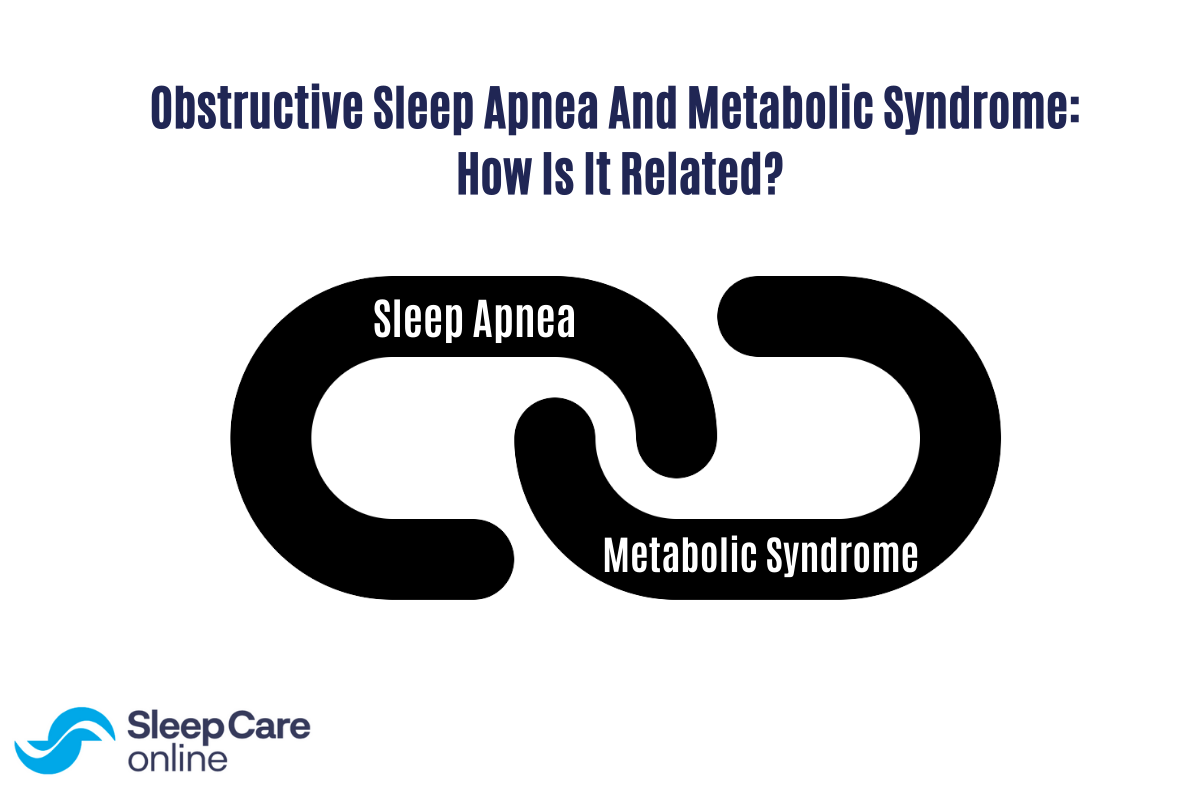Links between obstructive sleep apnea and metabolic syndrome have been discovered in recent research.1 Sleep loss from sleep apnea affects overall health and well-being and can amplify the health concerns of metabolic syndrome.
Introduction to Metabolic Syndrome
Metabolic syndrome is a group of five health conditions that can lead to heart disease, diabetes, and stroke. The health conditions include high blood pressure, high blood sugar, excess body fat around the waist, and abnormal cholesterol levels. Although some people are genetically prone to developing metabolic syndrome, others get it as a result of their lifestyle or other factors.
What Are the Symptoms of Metabolic Syndrome?
Metabolic syndrome does not have any defining or specific symptoms. This makes diagnosing this condition very hard and also very serious. Only through a doctor’s diagnosis during a routine physical examination can metabolic syndrome be detected. However, some people may experience obesity and weight gain as potential symptoms.
What Are the Risk Factors for Metabolic Syndrome?
This condition is diagnosed with three or more of the following risk factors:
- High blood sugar
- Low levels of HDL (good cholesterol)
- High levels of triglycerides
- Large waist circumference
- High blood pressure
How is OSA Related to Metabolic Syndrome?
Obstructive sleep apnea causes sleep deprivation which over time can erode physical health, including contributing to metabolic syndrome by increasing the risk factors of the condition. Sleep loss leads to high blood pressure and high blood sugar levels, along with weight gain — all risk factors for metabolic syndrome.
How Does Obstructive Sleep Apnea Cause Diabetes?
A lack of sleep from OSA can affect the release of the body’s insulin, which is a blood sugar-lowering hormone. Increased blood sugar levels increase the risk for type 2 diabetes. Read more about diabetes and sleep apnea in this blog post.
Obstructive Sleep Apnea and High Blood Pressure
If you sleep less than five hours a night, your risk for high blood pressure increases. Sleep deprivation causes a swing in hormones which contributes to the risk factor. Read more about high blood pressure and sleep apnea in this blog post.
Obesity and Obstructive Sleep Apnea
Obesity is both a risk factor for OSA and metabolic syndrome. More fatty tissue around the throat is more likely to cause the airway to close during sleep. Losing weight is one of the lifestyle changes anyone with sleep apnea can make to improve their sleep. Read more about the relationship between obesity and sleep apnea in this blog post.
Can Metabolic Syndrome Trigger Obstructive Sleep Apnea?
Risk factors of this condition such as obesity can contribute to sleep apnea. But overall sleep apnea can have more of an impact on metabolic syndrome by elevating the many health risk factors. Poor sleep and poor health often go hand in hand. Take care of your health by getting regular checkups Take care of your sleep by getting tested for obstructive sleep apnea.
How Do I Know If I Have Obstructive Sleep Apnea?
A home sleep apnea test is one of the easiest ways to find out if you have obstructive sleep apnea. Visit Sleep Care Online and take the test in the comfort of your own home.
References
- US National Library of Medicine. Correlation between metabolic syndrome and sleep apnea, 2018





